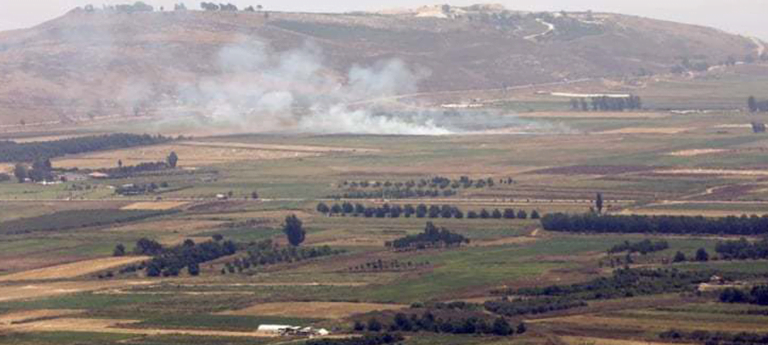Two rockets launched from Lebanon struck Israel on Wednesday, who responded with artillery fire, amid heightened regional tensions over an alleged Iranian attack on an oil tanker in the Gulf last week.
Since Israel’s war with Hezbollah, which has advanced rockets, in 2006, the border has been quiet.
However, the small Palestinian faction in Lebanon has fired sporadically at Israel in the past and launched two rockets at Israel on July 20, causing no damage or casualties. Israel responded to this incident with artillery fire.
The most recent border incident occurred after an attack on an oil tanker off the coast of Oman last Thursday, which Israel blamed on Iran. Two crew members, a British and a Romanian, were killed. Iran denies any involvement.
On Tuesday, the United Kingdom, Romania, and Liberia told the UN Security Council that it is “very likely” that Iran will use one or more drones to attack Mercer Street, a Japanese oil products ship flying the Liberian flag, administered by Zodiac Maritime of Israel.

The United States and Britain said Sunday they would cooperate with their allies in response to the attack. Israeli Prime Minister Naftali Bennett (Naftali Bennett) said on Tuesday that if necessary, Israel will retain the option to act only against Iran.
Israel’s Magen David Adom National Ambulance Service stated that there were no casualties in the mountainous border area on the Israeli side, where the rocket set fire to bushes.
No one immediately claims responsibility for the rocket attack, which was launched from southern Lebanon under the control of Iranian-backed Hezbollah guerrillas.
Several Israeli communities sounded alarms for rocket attacks, including the northern city of Kiryat Shmona, near the border with Lebanon.

The Israeli army said in a statement that three rockets were fired from Lebanon, one of which landed outside the Israeli border and the others inside Israel. Witnesses in Lebanon also reported that several rockets were fired at Israel.
“In response, [Israeli] artillery troops attacked Lebanese territory,” the army said. About two hours after the initial bombing, the army stated that its artillery fired at targets along the border again, but no targets were identified.
The United Nations Interim Force in Lebanon stated that Major General Stefano del Cole, head of its mission and force commander, is in contact with both parties.
“He urged them to cease fire and exercise maximum restraint to avoid further escalation, especially on this solemn anniversary,” the statement said.
Read More: US expects Pakistan to play its vital role in Afghanistan-Taliban peace, says Secretary of state








